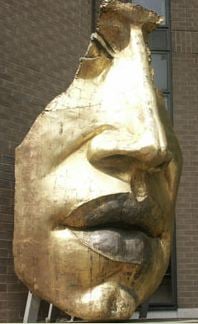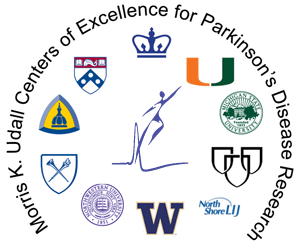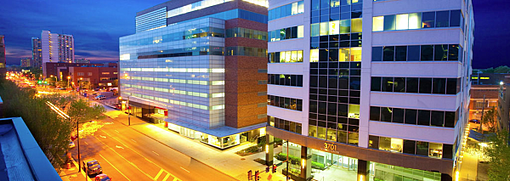Thomas Jefferson University is on the forefront of research lab science and healthcare development. Although the university is based in Philadelphia, Thomas Jefferson administrators and research lab scientists envision the school breaking out into the global science research market. Dr. Stephen K. Klasko, president of Thomas Jefferson University, has an innovative plan to unite Thomas Jefferson University, Thomas Jefferson University Hospitals and the institution’s 800 physicians under a single entity.
Tags: 2014, Pennsylvania, Thomas Jefferson University, Philadelphia, BioResearch Product Faire Event, PA, new Building, ThomJeff
This year the annual BioResearch Product Faire™ Event at Thomas Jefferson University will be held on campus in close proximity to researchers, research labs, and department adminstrators. This marks a change over the past few years when the show was held off campus at a local hotel. This event is open to Philadelphia area life science professionals interested in seeing the newest lab technologies available. This year the event will be held at the Bluemle Life Science Building where as many as 20 companies will be present to share their newest technologies with the Thomas Jefferson research community.
Tags: 2014, Thomas Jefferson University, Philadelphia, BioResearch Product Faire Event, PA, ThomJeff
Lab suppliers working to market life science solutions in Philadelphia will find a market rich with life science funding at Thomas Jefferson University. According to recent NIH and NSF funding statistics, the NIH awarded Thomas Jefferson University $49.7 million in research funding in 2012. In addition to receiving NIH research funding, Thomas Jefferson University received $318,984 in NSF life science funding for life science projects alone.
Tags: 2014, 2013, Pennsylvania, Northeast, Thomas Jefferson University, Philadelphia, BioResearch Product Faire Event, PA, NIH funding, NIH grant, NIH award, ThomJeff
Scientists at Thomas Jefferson University have discovered a gene that has a powerful effect on the development of breast cancer tumors in mice. The gene EYA1 was proved to be overexpressed in luminal B, a genetic breast cancer subtype. The researchers also found that too much activity in EYA1 increases the presence of breast cancer stem cells that allow the body to resist cancer therapy and lead to a low survival rate.
Tags: 2014, 2013, Pennsylvania, Northeast, Thomas Jefferson University, Philadelphia, BioResearch Product Faire Event, Front Line event, PA, ThomJeff
 Long considered one of the inferior senses, anyone who has lost their ability to taste as a result of age or cancer treatment will tell you life's luster is considerably dimmed in the absence of this sensory experience. Fortunately, research into taste and smell is going strong in Philadelphia at the Monell Chemical Senses Center, which is the only non-profit scientific basic research institute in the world dedicated entirely to understanding these intertwined senses. Once an entity within the University of Pennsylvania, the Center branched out on its own several decades ago, with labs a few blocks from the Penn campus on Market Street. Researchers at Monell work interdisciplinarily and many have joint appointments with Penn. Other research projects are carried out in conjunction with scientists at Thomas Jefferson University, also in Philly, and indeed with university and private lab investigators around the world.
Long considered one of the inferior senses, anyone who has lost their ability to taste as a result of age or cancer treatment will tell you life's luster is considerably dimmed in the absence of this sensory experience. Fortunately, research into taste and smell is going strong in Philadelphia at the Monell Chemical Senses Center, which is the only non-profit scientific basic research institute in the world dedicated entirely to understanding these intertwined senses. Once an entity within the University of Pennsylvania, the Center branched out on its own several decades ago, with labs a few blocks from the Penn campus on Market Street. Researchers at Monell work interdisciplinarily and many have joint appointments with Penn. Other research projects are carried out in conjunction with scientists at Thomas Jefferson University, also in Philly, and indeed with university and private lab investigators around the world.
Tags: 2014, 2013, Pennsylvania, Northeast, University of Pennsylvania, UPenn, Thomas Jefferson University, Stem cell research, taste buds, Monell Chemical Senses Center, Philadelphia, BioResearch Product Faire Event, PA, ThomJeff, taste
 The Parkinson's Disease Biomarkers Program (PDBP) is a recently-formed NIH initiative to advance research into biomarkers for the disease in order to better understand its progress and develop treatments. Some funded projects will focus on statistical analysis tools and data sharing among researchers. Others will examine early clinical manifestations of PD in patients. Still more will involve lab studies, including identification of genetic biomarkers as well as antibodies in the blood and changes in body chemistry. All projects "must inform the etiology, pathogenesis or treatment of PD," according to grant program guidelines. Research supported by the PDBP is being carried out at the 11 Morris K. Udall Centers of Excellence in Parkinson's Disease Research (logo right), directed by the National Institute of Neurological Disorders and Stroke (NINDS) within the NIH.
The Parkinson's Disease Biomarkers Program (PDBP) is a recently-formed NIH initiative to advance research into biomarkers for the disease in order to better understand its progress and develop treatments. Some funded projects will focus on statistical analysis tools and data sharing among researchers. Others will examine early clinical manifestations of PD in patients. Still more will involve lab studies, including identification of genetic biomarkers as well as antibodies in the blood and changes in body chemistry. All projects "must inform the etiology, pathogenesis or treatment of PD," according to grant program guidelines. Research supported by the PDBP is being carried out at the 11 Morris K. Udall Centers of Excellence in Parkinson's Disease Research (logo right), directed by the National Institute of Neurological Disorders and Stroke (NINDS) within the NIH.
Tags: 2014, 2013, Pennsylvania, Northeast, University of Pennsylvania, UPenn, Thomas Jefferson University, Parkinson's Disease Research, Biomarkers, Philadelphia, BioResearch Product Faire Event, Funding, Genomics, Neurology, NIH, Northeast Region, ThomJeff
With the advances in microscopy and digital imagery today, it's not unusual to find yourself looking at visual representations from the micro-world of the lab that are truly beautiful to behold, both for what they tell us about the science of life and on an aesthetic level as well. Some of the images might be said to qualify as art. In the case of Greg Dunn, PhD Neuroscience 2011 from the University of Pennsylvania, neural art has become his profession, and departments of neuroscience across the US have commissioned his large, metallic and ink visions for their offices, libraries, and reception halls. Influenced by Japanese art, completely self-taught, and still very much the scientist with his subject matter, Dunn's work is quite simply spectacular, and a great deal more than an homage to the neuron.
Tags: Pennsylvania, Northeast, University of Pennsylvania, UPenn, Thomas Jefferson University, 2012, Neuroscience, Philadelphia, BioResearch Product Faire Event, Front Line event, ThomJeff


